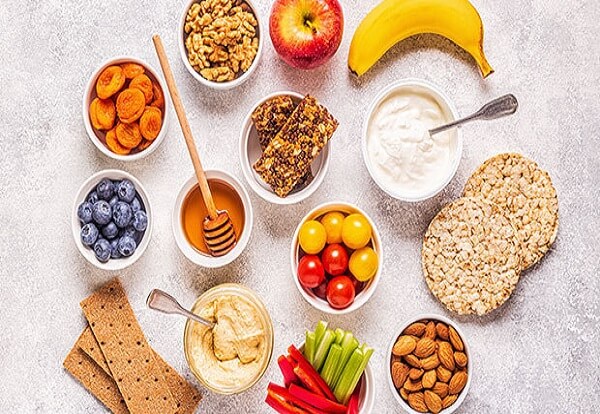Ramadan is a holy month for Muslims around the world, where they fast from dawn until sunset. Fasting during Ramadan can be a challenging task, but it can also be an opportunity for people to improve their health and well-being. Maintaining a healthy weight during Ramadan can be a challenge for many people. However, with some simple steps, it is possible to maintain a healthy weight during this holy month.
Ramadan can be a great opportunity to maintain weight for several reasons.
Firstly, fasting during Ramadan helps to regulate food intake, as individuals are only allowed to eat during specific hours of the day. This can prevent overeating and grazing throughout the day, which can lead to weight gain.
Secondly, fasting can also help to improve insulin sensitivity, which can lead to better blood sugar control and weight management. When the body is in a fasted state, it uses stored energy sources, such as fat, for fuel. This can help to burn excess fat and promote weight loss.
Thirdly, Ramadan can also be a time for individuals to adopt healthier eating habits. With a focus on nutritious foods during Iftar and Suhoor, individuals can incorporate more fruits, vegetables, lean proteins, and healthy fats into their diets. This can help to reduce the intake of processed and high-calorie foods, which can contribute to weight gain.
Here are some tips on how to maintain your weight during Ramadan:
1. Plan your meals:
Plan your meals ahead of time and make sure to include a variety of nutritious foods such as whole grains, fruits, vegetables, lean proteins, and healthy fats. This will help you stay full and satisfied throughout the day, and prevent you from overeating during iftar and suhoor.
2. Stay hydrated:

Drinking enough water and fluids during non-fasting hours is important for maintaining hydration and preventing dehydration during the fasting period. Sugary drinks, such as soda and juice, should be avoided as they not only add unnecessary calories but can also cause a spike in blood sugar levels, leading to hunger and cravings. Instead, opt for water, herbal teas, and sugar-free beverages to help keep you hydrated and energized throughout the day.
3. Avoid fried and fatty foods:

During Ramadan, it’s important to limit the consumption of fried and fatty foods as they are high in calories and can contribute to weight gain. These types of foods can also lead to digestive discomfort and bloating during the fasting period. Opting for healthier cooking methods such as grilling, baking, or steaming can provide a lower calorie alternative that is easier to digest and promotes weight maintenance. Focusing on a balanced diet that includes a variety of whole foods can help maintain a healthy weight while still enjoying the spiritual and social benefits of Ramadan.
4. Choose healthy snacks:
Fresh fruits such as dates, watermelon, and oranges are good sources of vitamins, minerals, and fiber. Nuts, such as almonds, walnuts, and pistachios, are rich in healthy fats, protein, and fiber. They can help to stabilize blood sugar levels, reduce hunger, and promote fullness. However, it’s important to consume nuts in moderation.

Low-fat dairy products, such as milk, yogurt, and cheese, are good sources of protein, calcium, and vitamin D. Other healthy snack options include vegetables, such as carrots, cucumbers, and bell peppers, and whole grain snacks, such as popcorn or whole grain crackers.
5. Practice portion control:
Portion control is a key factor in maintaining a healthy weight during Ramadan. Overeating during iftar and suhoor can lead to weight gain and digestive discomfort, making it important to be mindful of the amount of food you consume. Starting with small portions and eating slowly can help you avoid overeating and promote satiety. Savoring each bite can also help you appreciate the flavors and textures of your food, making the meal a more enjoyable experience. It takes about 20 minutes for your brain to register that you’re full, so eating slowly and mindfully can help prevent overeating and promote a feeling of fullness. If you feel full, stop eating even if there is still food left on your plate. Packing up leftovers or sharing meals with others can also help prevent overeating and reduce food waste.
6. Exercise:

Light exercise during non-fasting hours can also be beneficial for maintaining a healthy weight during Ramadan. Activities such as walking, stretching, or gentle yoga can help keep the body active and energized. These types of exercises can also help to promote blood circulation and reduce stiffness that may result from long periods of sitting or standing during the day.
It’s important to note that strenuous exercise should be avoided during the fasting period as it can lead to dehydration and fatigue. Instead, light exercise during non-fasting hours can provide a gentle way to stay active and healthy. Taking a short walk after Iftar or Suhoor can also be a great way to get some fresh air and clear your mind.
By making exercise a habit during Ramadan, you can set a foundation for a healthier lifestyle moving forward.
7. Get enough sleep:
Getting enough sleep is important during Ramadan as it helps regulate your hormones, reduce stress levels, and improve overall health. Aim for at least 6 hours of sleep per night.
Maintaining a healthy weight during Ramadan is possible with a little bit of planning and effort.


Post Comments